
In recent years, the number of start-ups specialising in areas such as athletic performance and analytics, artificial intelligence (AI), big data, fantasy sports, gaming, content production and in-venue technology has proliferated, contributing to rapid growth across the sports tech startups sector.
With an estimated investment topping at US$8.9 billion, the global sports tech market is expected to triple in value in the next five years. But investors' worth their balance-sheet will know, not all new technologies make for an attractive investment option.
In this article we profile products and services that should be on every sports tech startups investor's line of sight. We present you a pick of emerging startups to invest in.
Sports Tech Startups
 USA: Data analytics
USA: Data analytics Sports rights holders have realised the value and power of data they hold about their fans. Having invested in CRM systems, data "warehouses" and even data "lakes" how does one garner insights from all this data?
Pumpjack Dataworks' helps teams and venue operators pull out the key data, such as who was using the mobile app to check scores when the game was on, but not at the venue and hasn't attended for a certain period. This gives insights for existing and potential commercial partners. If data is the new oil, they certainly know where to dig.
 UK: Esports
UK: Esports Tournament organisers and team owners can create rules, establish contracts for gamers, and ensure that players get paid. Competitive gaming is huge with prize money of US$400m at stake, but contracts can be poor and players go unpaid, fuelling the widespread notion that esports is still unorganized. Edge can solve properly regulated contracts and payments.
What distinguishes Edge from other agencies is that they personally access players and their families at all times. They realize and embrace the fact that their responsibilities to clients go far beyond simply negotiating a contract.
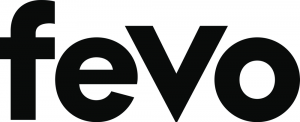 UK: Ticketing
UK: Ticketing Technology plugs into an event's ticketing provider and encourages social sales by enabling fans to invite friends/relatives/colleagues, pay separately and to experience events together. This has proven to enhance ticket sales and increase engagement.
 Australia: Athletic performance
Australia: Athletic performance In here augmented reality (AR) is used to assess soccer players' skills on shooting, ball control, speed with and without the ball, and passing. The target market is 12 to 17-year-old, soccer-aficionados looking to improve. They were selected to work with UEFA and have created a 'player card' that monitors progress and compares performance.
 USA: Media and content
USA: Media and content Content owners can now create their own interactive streams by providing a solution for broadcasters and OTT channels to engage and monetize their fans. It has already gained clients in esports and entertainment and has proven its capability to operate at scale, with customers including PlayStation, Microsoft and ESL.
 Israel: Media and content
Israel: Media and content This technology enables content owners to identify important moments in a video clip to increase consumption by showing dynamic thumbnails, to make real-time content recommendations, and to improve storytelling by identifying peak moments in live broadcasts.
They now count Major League Baseball (MLB) and the National Football League (NFL) as clients.
 USA: In-venue technology
USA: In-venue technology Misapplied Sciences "parallel reality" technology uses pixels to simultaneously project millions of light rays of different colours and brightness, with each ray then being software-directed to a specific person, meaning that hundreds of viewers can simultaneously look at a display and see something different. This startup's technology in sports and entertainment are significant.
 USA: Athletic performance
USA: Athletic performance Motion capture sensors are used in sports apparel to guide and correct an individual's workouts. This would help users to follow coaching programmes of elite athletes and coaches. The motion sensors monitor a user's style and technique while delivering feedback in real-time.
The British Rowing team profited as coaches could monitor and guide athletes with their technique and routine so as to improve performance.
 UK: Media and content
UK: Media and content Mobile-based algorithms identifies periods in a person's routine that are appropriate to receive and watch content. By selling content which are inclusive of a company's personalisation technology within their app enables them to achieve higher engagement rates, increased views and more viewers watching the content until completion.
 UK: Online betting
UK: Online betting Prophet is an independent, secondary marketplace for cashing out bets. Sports betting market is large and growing, attracting investors. The founders relocated from the US to the UK in order to launch in a market with more established gambling regulation.
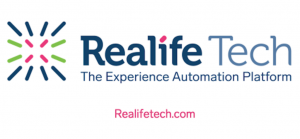 UK: Data analytics
UK: Data analytics Earlier known as LiveStyled and now relaunched with a new name and a new round of funding. Realife Tech creates a 'data spine' that enables venue owners and teams to bring all their diverse digital systems together. So as to compare different data sources, identify opportunities and personalise content to drive revenues.
They have done case study on various clients such as The O2 and Premier League club Tottenham Hotspur. They are now focusing on the US and have signed lucrative deals.
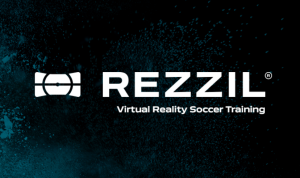 UK: Athletic performance
UK: Athletic performance With its virtual reality (VR) training and cognitive development tool enables soccer players to maintain their mental 'match day' agility while recovering from injury. Players are placed in a number of training scenarios where their reaction times and game awareness can be measured.
This has been deployed by Premier League clubs Liverpool and Manchester City to monitor and track players at different stages of their development or identify talent.
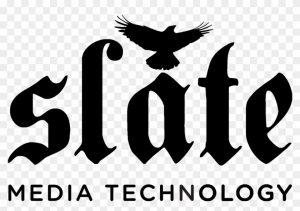 USA: Media and content
USA: Media and content Slate is a sports tech startups enables content producers to ensure their content for social channels is on-brand, complete with the correct colour schemes and brand assets. Incredibly simple to use, Slate has secured funding from notable investors and the platform has already gained traction among teams in the NFL, NBA and MLB.
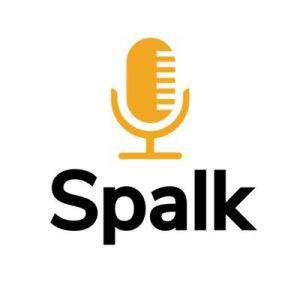 New Zealand: Media and content
New Zealand: Media and content Spalk's 'Virtual Sportscasting Studio' enables content owners to provide multiple different commentary streams on every live game in different languages and commentary styles. Commentators can sit anywhere in the world and broadcast. Spalk helps to localise and personalise output while keeping costs low.
Sports tech startups Spalk has reputed clients like international sports organisations to deliver content via OTT, radio and linear TV channels.
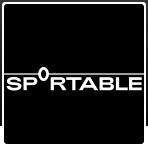 UK: Athletic performance
UK: Athletic performance By bringing together the data from a chip in the ball, force measurement sensors on the shoulders of shirts and player tracking to create a complete statistical view of the on-pitch action, providing team performance analysts, media and officials with real-time insights.
 USA: Fantasy sports
USA: Fantasy sports Starting XI is a fantasy soccer game whose USP is the ability for players to make substitutions to teams in real time. The company operates in the US, UK, Germany and Canada. They secured a $5 million investment to be used to fund a significant expansion into India whilst leveraging its media channels.
 USA: Media and content
USA: Media and content With a focus on mobile video consumption, that enables content owners and OTT operators to provide interactivity on a mobile device that is difficult due to limited screen size. Aiming to ' reimagine the video experience ', by investing in its UX capabilities has created an engaging, mobile-first user experience.
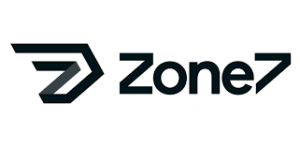 USA: Athletic performance
USA: Athletic performance Zone7 is a sports tech startups that uses AI to find data patterns that propagate injury risk and peak performance to prevent injuries, increase availability and improve performance. By comparing stress loads to historical data, the firm enables coaches to develop individual training plans to minimise risk of injury. Current clients are Major League Soccer (MLS) and MLB but they plan to foray into recreational sports.


